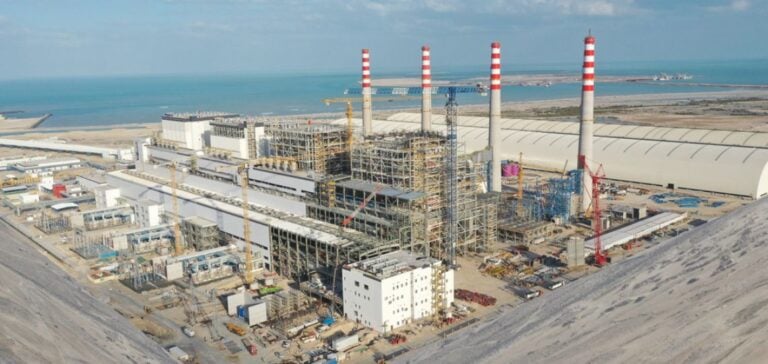PowerChina, a major player in construction and engineering, continues to expand its presence in the Middle East by developing strategic projects that support the region’s economic and energy objectives. Leveraging its ability to integrate complete industrial resources, the company is helping to diversify the economy and modernize local infrastructures. Desalination projects are expanding in the Middle East, as in Oman, where a similar project was inaugurated in November 2023.
Strategic Projects and Technological Advances
PowerChina has recently launched several major initiatives in the Middle East, including large-capacity desalination plants and high-efficiency gas turbine power stations. These projects are designed to meet the region’s growing water and energy needs while improving operating efficiency. For example, the Hassyan desalination project in Dubai, once completed, will produce more than 800,000 cubic meters of water per day, playing a crucial role in water resource management in the United Arab Emirates.
The company is also at the forefront of innovative photovoltaic technologies, integrating renewable energy systems into its projects to meet growing energy demand while reducing operating costs. These initiatives support the economic and energy diversification efforts of countries like Saudi Arabia, aligned with Vision 2030.
Local Partnerships and Economic Development
PowerChina adopts a localization strategy, working closely with local partners to maximize the economic impact of its projects. The company hires local subcontractors and uses local resources to stimulate the economy and create employment opportunities. This approach not only strengthens local capacities, but also ensures that projects are better integrated into the regional economic fabric.
The Red Sea Complex project in Saudi Arabia, for example, is a key initiative that combines different energy sources to create a zero-carbon energy system. This project, in partnership with local companies, highlights PowerChina’s commitment to supporting the development of modern, sustainable infrastructure.
Integration capabilities and regional expansion
With extensive experience in managing complex projects, PowerChina stands out for its ability to integrate complete industrial resources, from design to commissioning. This expertise enables him to successfully complete large-scale projects on time and on budget. PowerChina’s teams, often made up of local professionals, benefit from ongoing training to ensure high quality of execution and adaptation to regional specificities.
PowerChina’s expansion in the Middle East is also marked by investment in research and development, aimed at providing innovative solutions tailored to local challenges. By collaborating with local institutions and companies, PowerChina is strengthening its position as a leader in the Middle East’s engineering and construction sector.
PowerChina continues to play a crucial role in developing infrastructure and improving energy efficiency in the Middle East. Thanks to strong local partnerships and innovative strategic projects, the company supports economic growth and infrastructure modernization in the region.






















